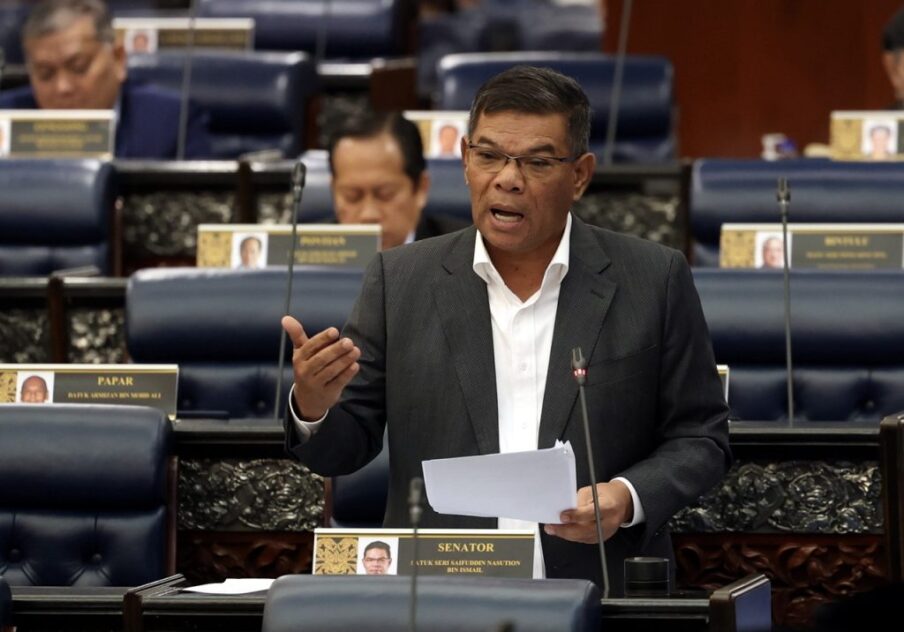KELANTAN’s forestry department director Abdul Khalim Abu Samah cannot cherry-pick from a study done by WWF-Malaysia in 2009 to say that logging might be helpful to the preservation and longevity of the tiger population in the country.
Penang Deputy Chief Minister II Prof Dr P. Ramasamy said that by being selective, the director missed the larger context of the biology of tiger sustainability.
It was previously reported that Orang Asli villagers in Gua Musang had complained that tigers were encroaching into the area as a result of habitat loss due to logging to which Abdul Khalim had responded saying that logging was “good for the population of tigers”.
He went on to cite a WWF-Malaysia study that it would lead to an emergence of new plants, which would then attract animals which tigers could prey on.
However, WWF-Malaysia clarified yesterday (Jan 25) that its 2009 study on tigers found the animals benefitted only in a selectively logged part of a forest that also adhered to sustainable management and not indiscriminate logging.
“It was more of a hypothesis rather than a confirmation of the relationship between selective logging and the preservation of tigers by not disrupting the food chain,” Ramasamy said of the WWF-Malaysia study.
“For instance, the clearing of dense jungle canopy might attract animals such deer and other animals that tigers prey on.”
He noted that this might have been possible in other countries like India where the tiger population has increased over the years.
“However, the WWF-Malaysia study was inconclusive and it in no way suggested that selective logging is the answer for the preservation of the tiger species,” Ramasamy added.
“I am not sure whether the director made his ludicrous remark to protect tigers or to justify indiscriminate logging in Kelantan.”
The Perai assemblyperson further called out the Kelantan deputy Menteri Besar Datuk Mohd Amar Nik Abdullah for coming to the defence of the embattled forestry director.
“This is as though the two wrongs could rectify the earlier mistake, and that civil servants and politicians can do no wrong in the underdeveloped state of Kelantan,” he scoffed.
According to Ramasamy, the entire tiger ecology was not well understood, but yet certain parties had attempted to justify the idea of limited or selective logging.
“Yes, logging is the selective removal of trees for commercial purposes and the income from logging concessions goes to the states in the country,” he commented.
“However, logging concessions are replete with corruption and other misdeeds. It is not about tiger preservation alone but how logging has aggravated the flood situation in the country.
“States that are deprived of federal funds turn to logging for the derivation of extra funds. The concept of ‘selective logging’ is a misnomer insofar that it has been found that those who receive logging concessions do not really confine themselves to the areas permitted.”
Ramasamy argued that in most of the areas marked for logging, the actual felling of trees was expanded to twice or three times the areas legally permitted by the authorities.
“When there is abuse of logging concessions, how can the so-called ‘selective logging’ safeguard areas for the revival of the tigers?” he questioned.
“There is a huge gulf between what is considered as selective logging and what is actually logged.
“What is actually happening in the country is not ‘selective logging’ but rampant and indiscriminate logging at the expense of ecological concerns.
“If the forestry departments in the country are not aware of what is happening to the natural habitat, how can they expect to revive the country’s declining tiger population?” – Jan 26, 2022









